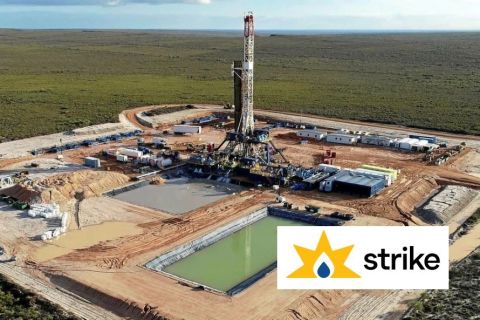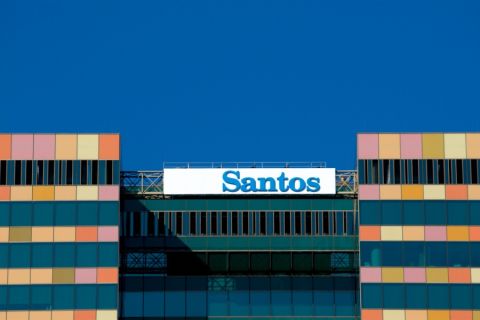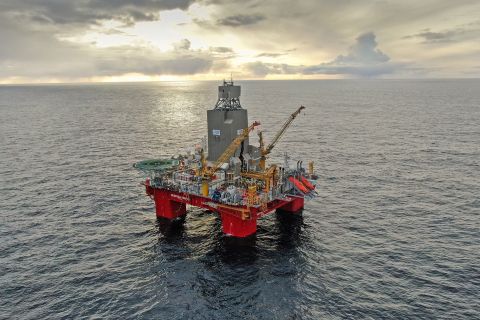
Earnings per share rose to 42 cents in Q4 for natural gas producer EQT. (Source: Hart Energy, Shutterstock)
Volatile natural gas markets stung the balance sheet of EQT Corp., but the Appalachian producer still reported higher year-over-year quarterly earnings on Feb. 16.
The company also said its $5.2 billion acquisition of Tug Hill’s upstream assets and XcL Midstream’s gathering and processing assets, announced in September, was awaiting regulatory approval. The deal had been expected to close in the fourth quarter.
EQT recorded quarterly earnings per share of 42 cents, up from 37 cents/share year-over-year. Adjusted EBITDA for the quarter was $678.7 million, an 11.4% drop year-over-year. For full-year 2022, EBITDA rose 51% to $3.52 billion.
The financial results fell far short of analysts’ consensus estimate of 54 cents/share and EBITDA of $768 million. Free cash flow of $225.5 million in the quarter represented a 46.6% drop year-over-year, and missed the consensus estimate of $297 million. For full-year 2022, free cash flow totaled $1.94 billion, more than double that of full-year 2021.
Guidance for 2023
CEO Toby Rice and CFO David Khani told analysts EQT expects to close the Tug Hill deal by midyear. The transaction will add about 800 MMcfe/d to the company’s production.
“The key thing with Tug Hill, and the reason why those assets had such a low breakeven cost, was really due to the fact that they own their midstream, and also the liquids percentage of their program that they’re running there,” Rice said. “These are pretty high-quality assets, so the activity levels needed to maintain production will mitigate some of the service cost inflation effects.”
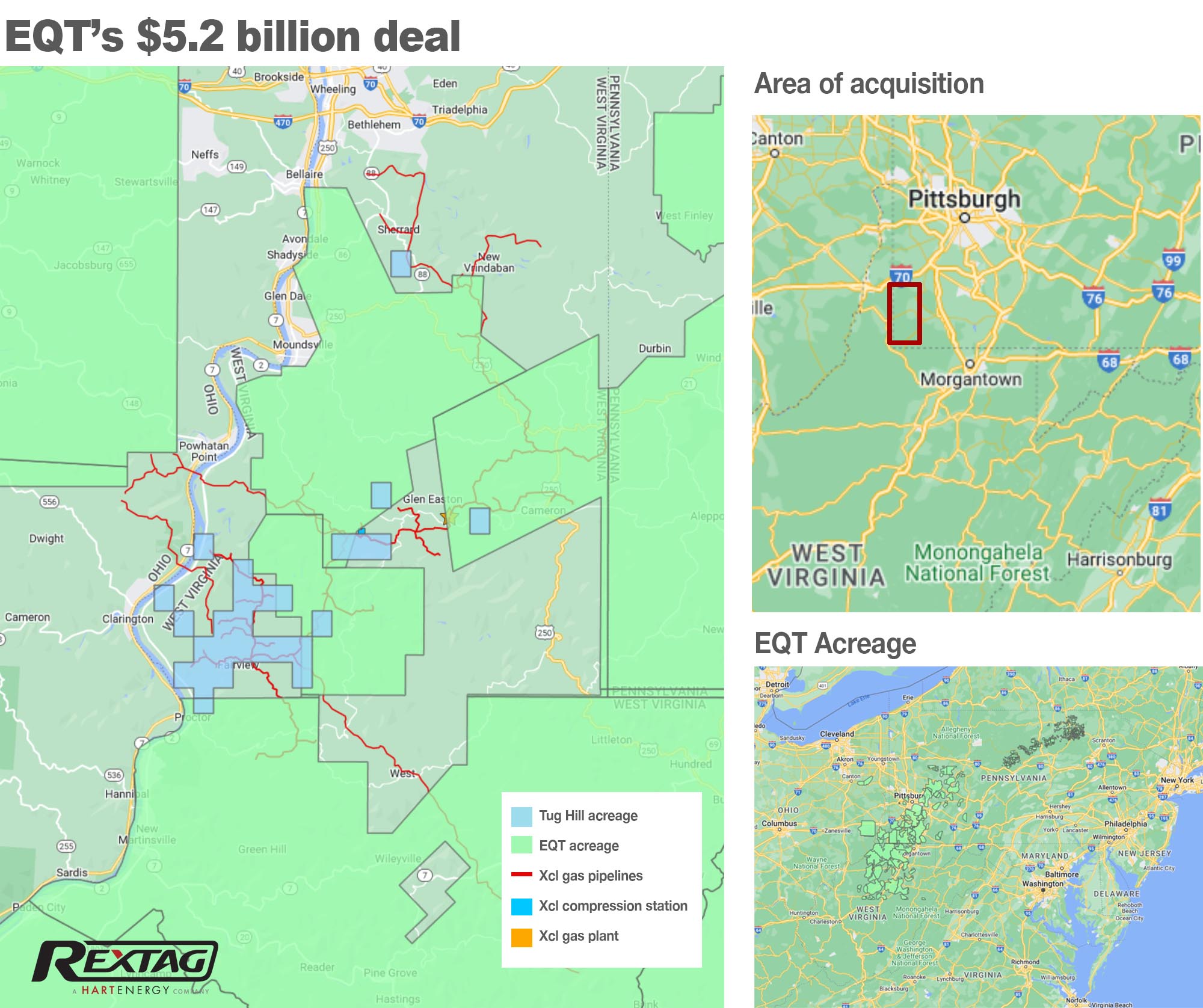
Total gas production rose 4.4% in 2022 to 1.94 Tcfe. EQT’s guidance for 2023 production is 1.9 Tcfe to 2 Tcfe, or what Piper Sandler noted was flat production with a 25% increase of capex to $1.7 billion to $1.9 billion.
The company provided guidance for 2023 based on average price of natural gas for the year. To achieve the 2022 level of EBITDA, prices in the Appalachian Basin would have to average about $3.50/MMBtu. The full-year level in 2022 was $3.17/MMcfe.
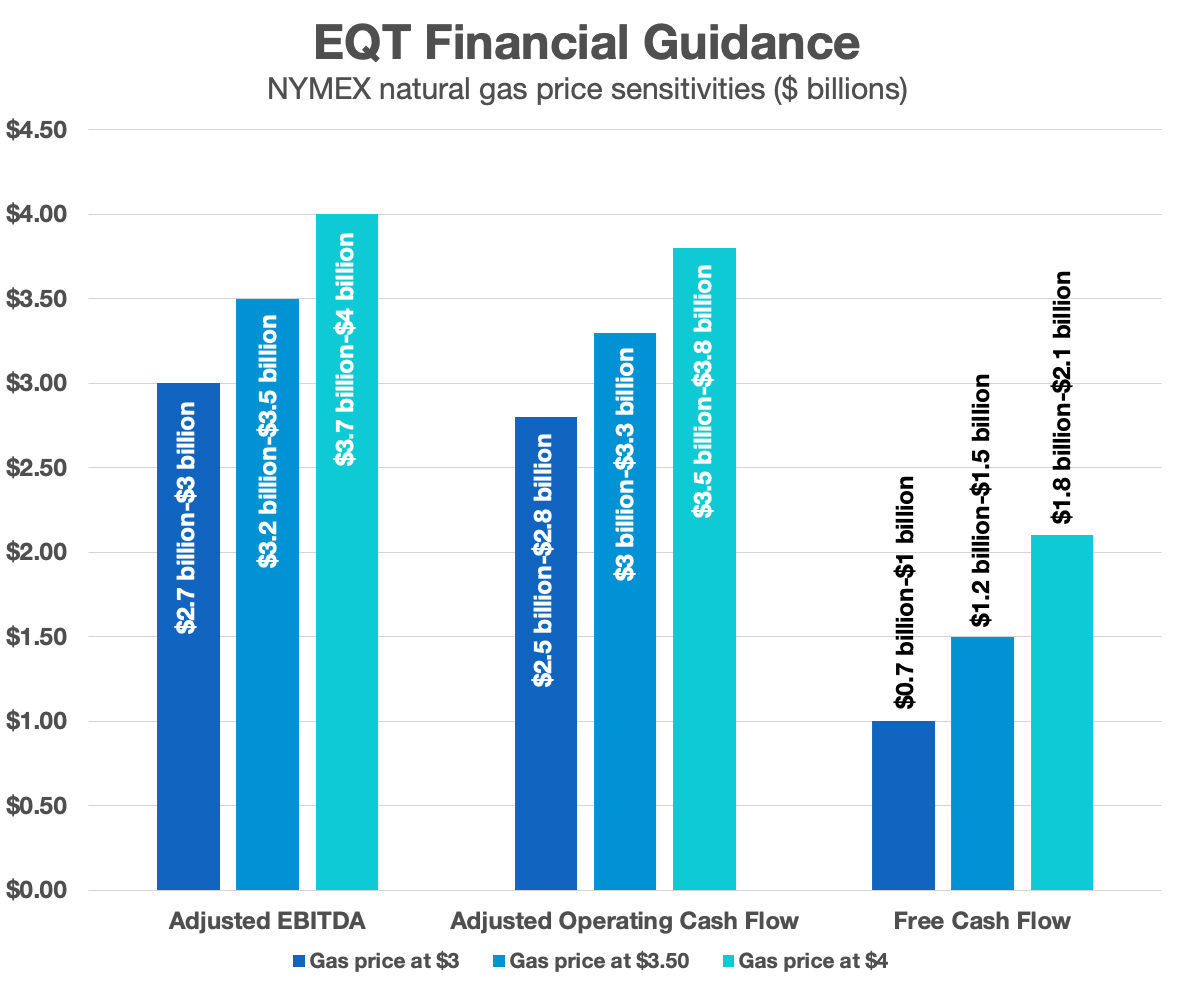
EQT Corp.)
“Gas volatility has tripled since early 2021 and so we think that’s going to continue,” Khani said. “Our hedging strategy—our Hedge 2.0 strategy, really—encapsulates that volatility. Volatility moves in both directions. That’s why we put our risk-adjusted upside in the way we structure our hedges.”
The natural gas market is oversupplied heading into 2023, with an expectation of a modest oversupply in 2024, he said. The combination of the shutdown of Freeport LNG and a mild winter dampened prices and caused a small increase in oversupply.
“It’s basically sending a signal to the producers to start to cut production because pricing is forcing your activity offline,” Khani said. “It’s also going to send demand up. And so, it’s going to create a reaction to try to get to that balanced market, which you're going to see from a combination of supply coming off or supply growth slowing, which will probably end up being about 1 Bcf/d of impact.”
Recommended Reading
US Drillers Add Oil, Gas Rigs for First Time in Five Weeks
2024-04-19 - The oil and gas rig count, an early indicator of future output, rose by two to 619 in the week to April 19.
Strike Energy Updates 3D Seismic Acquisition in Perth Basin
2024-04-19 - Strike Energy completed its 3D seismic acquisition of Ocean Hill on schedule and under budget, the company said.
Santos’ Pikka Phase 1 in Alaska to Deliver First Oil by 2026
2024-04-18 - Australia's Santos expects first oil to flow from the 80,000 bbl/d Pikka Phase 1 project in Alaska by 2026, diversifying Santos' portfolio and reducing geographic concentration risk.
Iraq to Seek Bids for Oil, Gas Contracts April 27
2024-04-18 - Iraq will auction 30 new oil and gas projects in two licensing rounds distributed across the country.
Vår Energi Hits Oil with Ringhorne North
2024-04-17 - Vår Energi’s North Sea discovery de-risks drilling prospects in the area and could be tied back to Balder area infrastructure.


